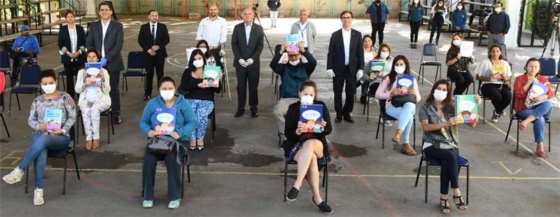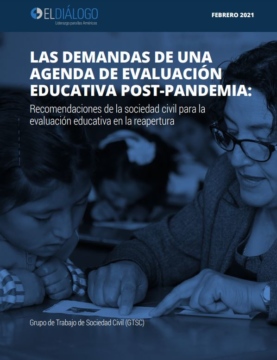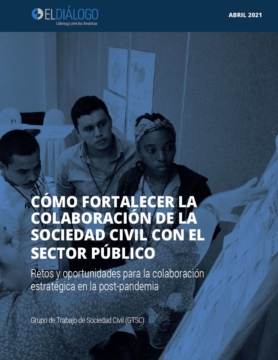
Will Latin America’s Schools Be Able to Reopen Safely?
Do schools in Latin America and the Caribbean have enough government funding and resources to both educate students and protect their health amid Covid-19?
This post is also available in: Español
This report is only available in Spanish.
Before the Covid-19 pandemic, Latin America faced the challenge of ensuring that all schools will have highly qualified and motivated teachers to support student learning. With the advent of the pandemic, this challenge has been exacerbated. During 2020, education systems in the region made great efforts to maintain continuity in the education process through the implementation of distance education models and, in a few cases, through partial school openings. In 2021, several countries gradually implemented hybrid or blended education models and a few achieved full school openings.
These reopening processes revealed multiple challenges: the impact on students' learning and emotional health, the increased risks of dropout, the widening of learning gaps. The ability to meet these challenges and successfully implement reopening processes depends on having sufficient teachers with the necessary competencies to support students.
Against this backdrop, it is worth asking how education systems in Latin America have adapted to support teachers during the pandemic. More specifically, what actions have been implemented to ensure working conditions for remote work and the return to in-person teaching? What training and support programs and actions have taken place or are being planned to support teachers in the implementation of distance education, hybrid education, and in-person education models in the context of the reopening of schools? What actions have been taken or are planned in the medium term for the recruitment and selection of new teachers?
This report elaborated by Latin America Coalition for Teaching Excellence studies the teacher support policies implemented by the governments of nine countries: Argentina, Chile, Colombia, Costa Rica, Dominican Republic, Mexico, Panama, Peru, and Uruguay. For the study of each country, official publications and press releases were taken into account, and in-depth interviews were carried out with leading figures in the field.
Do schools in Latin America and the Caribbean have enough government funding and resources to both educate students and protect their health amid Covid-19?
The following document presents five recommendations developed by the Dialogue’s Civil Society Working Group on conducting educational assessments during school reopening after the pandemic.
The following document developed by the Dialogue’s Civil Society Working Group, details the main challenges and opportunities for collaboration in education between public sector entities and civil society as well as 5 recommendations on for strengthening those collaboration post-pandemic.


